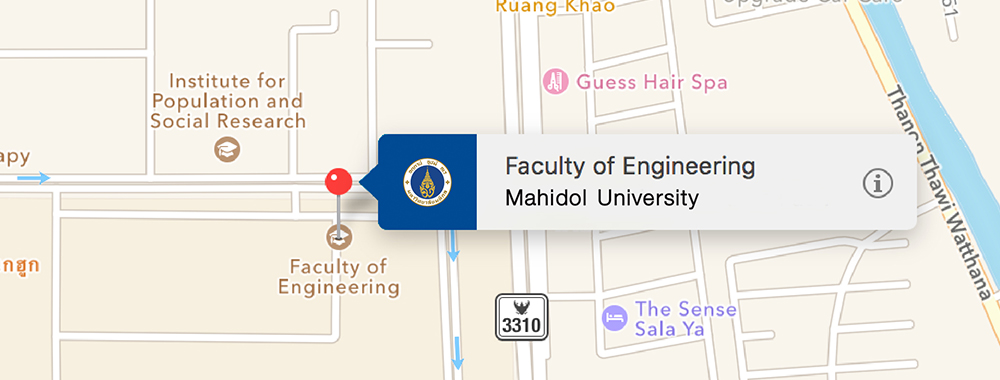Civil and Environmental Engineering Program
The Department of Civil and Environmental Engineering (CE) produces graduates in the field of structural design, construction planning and structural diagnosis, project management consultancy in construction projects. The students gain theoretical knowledge and practical skills from lectures and laboratory works, respectively. Field practice is also offered to provide our students with the experience of practical research in CE projects.
Programs
- Civil Engineering
PEO 1: Graduates apply scientific and technical engineering knowledge for problem solving in engineering practices and have skills to attain new knowledge that advance their career development.
PEO 2: Graduates perform at least the entry level of Civil Engineering practice in the planning, design, construction and administration of engineering structure and infrastructure projects, and practice in a responsible, professional, and ethical manner.
PEO 3: Graduates exhibit logical and innovative thinking, and incorporate economic, environmental, social, ethical, and sustainable considerations in the practice of civil engineering and researches.
PEO 4: Graduates communicate effectively with peers, work cooperatively with others, and exhibit leadership in their profession.PEO 1: Graduates apply scientific and technical engineering knowledge for problem solving in engineering practices and have skills to attain new knowledge that advance their career development.
PEO 2: Graduates perform at least the entry level of civil engineering practice in the planning, design, construction and administration of engineering structure and infrastructure projects, and practice in a responsible, professional and ethical manner.
PEO 3: Graduates exhibit logical thinking and be innovators who incorporate economic, environmental, social, ethical, and sustainable considerations in the practice of civil engineering and researches.
PEO 4: Graduates have effective communication skill, work cooperatively with others, and exhibit leadership in their profession.SO 1: An ability to identify, formulate, and solve complex engineering problems by applying principles of engineering, science, and mathematics.
SO 2: An ability to apply engineering design to produce solutions that meet specified needs with consideration of public health, safety, and welfare, as well as global, cultural, social, environmental, and economic factors.
SO 3: An ability to communicate effectively with a range of audiences.
SO 4: An ability to recognize ethical and professional responsibilities in engineering situations and make informed judgments, which must consider the impact of engineering solutions in global, economic, environmental, and societal contexts.
SO 5: An ability to function effectively on a team whose members together provide. leadership, create a collaborative and inclusive environment, establish goals, plan tasks, and meet objectives.
SO 6: An ability to develop and conduct appropriate experimentation, analyze and interpret data, and use engineering judgment to draw conclusions.
SO 7: An ability to acquire and apply new knowledge as needed, using appropriate learning strategies.Student Enrollment
Student Graduation*
Academic Year
No of student
Academic Year
No of student
% Graduation
2013
53
2016
38
71.70
2014
74
2017
63
85.14
2015
80
2018
65
81.25
2016
84
2019
74
88.10
2017
62
2020
57
91.94
2018
57
2021
61 (Expected)
91.23
Remark: *Drop out mostly from freshman students due to changing of area of interest.



